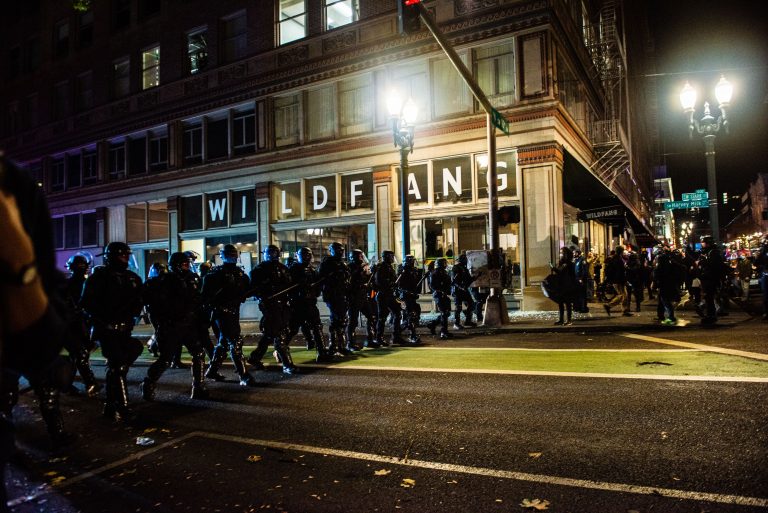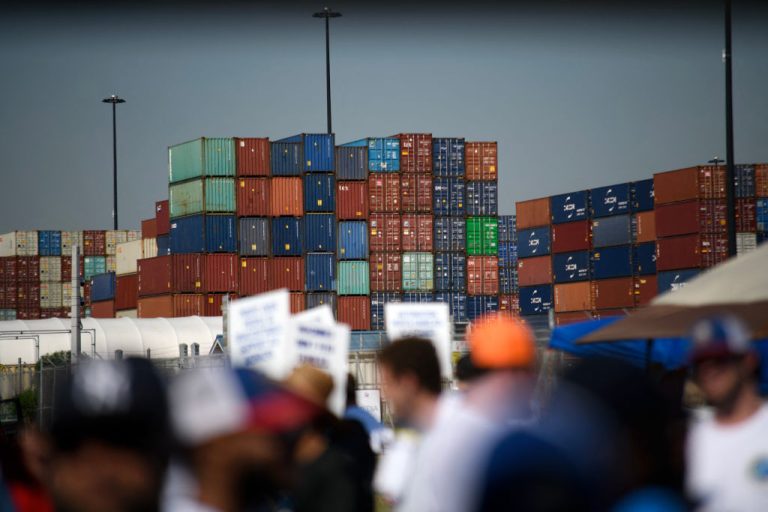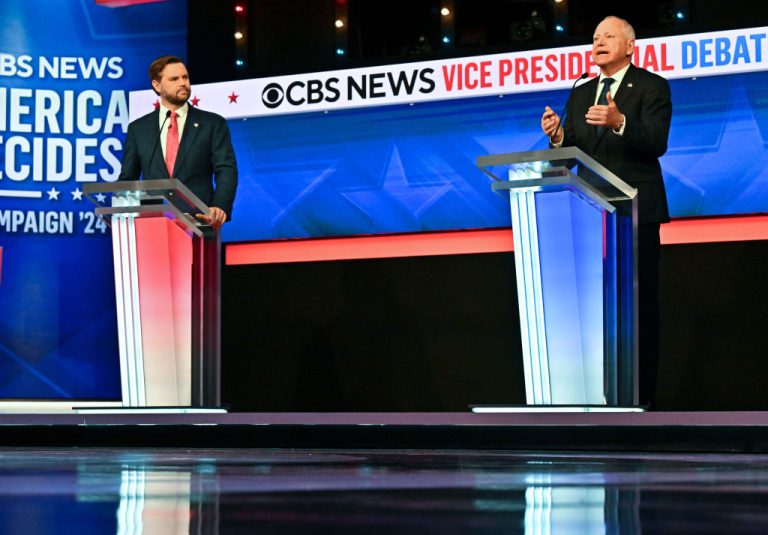Portland police declared a riot on New Year’s Eve as a violent crowd of approximately 100 people threw molotov cocktails and launched commercial-grade aerial fireworks at the Federal Courthouse and the Multnomah County Justice Center, according to a Portland Police Bureau press release.
When police engaged the crowd, they were targeted by large rocks, bricks, frozen water bottles, and paint balloons that were apparently laced with a caustic substance, as some officers suffered burns.
After the riot was declared, the crowd began setting fires.
In a Jan. 1 press briefing, Portland Mayor Ted Wheeler blamed Antifa for the violence and described the riots as “the height of selfishness,” while calling for tougher action.
Journalist Andy Ngo, who has reported extensively on Antifa, posted a video showing an attack on police.
Success
You are now signed up for our newsletter
Success
Check your email to complete sign up
Ngo also posted video footage of a Chase Bank that was vandalized. A Starbucks was also reportedly destroyed and several other businesses were heavily damaged.
The Mayor said he’s working with Multnomah County District Attorney Mike Schmidt and that the city is committed to ensuring rioters would be held accountable. Wheeler said he wanted to convene with all levels of law enforcement, including the federal level to “Develop clear plans to address anarchist violence both here in the City of Portland and throughout the State.”
Wheeler also called on the State Legislature to increase penalties on people who repeatedly engage in anarchism, saying “we need to look at reforms that improve our ability to video record and otherwise gather intelligence on these small groups of organized criminals.”
He also said he believes that “…people who are convicted of criminal destruction should be required to meet with the employees and owners of the businesses that they damage. These people need to hear and to understand the social and human consequences of their irresponsible actions.”
A policy change in Portland?
Wheeler’s response to the New Year’s Eve riots contrasts with a more conciliatory stance in recent months.
In mid-December, it was reported that District Attorney Schmidt’s office was not pursuing charges against people arrested in an occupied “autonomous zone” where threats were made to both police and first responders. Of 20 people arrested, prosecutors declined to charge 12 and lost the records of five others.
The “autonomous zone” consisted of erected barriers on North Mississippi Avenue by a group that had stockpiled weapons and posted armed sentries in response to an attempted eviction.
On Dec. 14, Wheeler’s office reached a deal with the occupiers, rather than allowing law enforcement to clear out the area.
In August, Wheeler declined President Donald Trump’s offer of federal aid to deal with the long-running Portland riots. He also blamed the President for the shooting of a right-wing protester earlier in the month.

District Attorney Schmidt announced at an August press conference that his office would not prosecute rioters: “These demonstrations are being used to righteously express grief, anger, and frustration over that senseless act of violence, and the countless other abuses people of color have endured throughout history at the hands of the legal system.”
Under the policy, escape in the third degree, harassment, and rioting would not result in prosecution.
Schmidt’s August policy required that a Deputy District Attorney review any cases involving resisting arrest or assaulting a police officer, and that any cases where persons charged with a misdemeanor or felony that only resulted in “financial harm” that the responsible party should be offered “conditional dismissal after restitution is paid to the victim or when other amends to the community are made, such as restorative justice with the impacted victim.”
In September, Wheeler, who also serves as Portland Police Commissioner, mandated that police discontinue the use of tear gas to disperse crowds. He also asked federal officers to end the deputization of police officers, which allowed rioters to be charged federally. The request was denied by the Oregon Department of Justice, who justified the action as a response to the violence endured by police and the community.
Recent months have seen a continuation of rioting in Portland that has been ongoing since the May 25 death of George Floyd in police custody.
On Nov. 6, Black Lives Matter targeted newly elected City Commissioner Dan Ryan’s home because he was the deciding vote against a motion to defund Portland police.
In another incident on Thanksgiving, rioters sacked ten Portland businesses.
The U.S. Department of Justice labeled Portland, Seattle, and New York City as “Jurisdictions permitting violence and destruction of property” in a Sept. 21 press release.
“When state and local leaders impede their own law enforcement officers and agencies from doing their jobs, it endangers innocent citizens who deserve to be protected, including those who are trying to peacefully assemble and protest,” said Attorney General William Barr.
“We cannot allow federal tax dollars to be wasted when the safety of the citizenry hangs in the balance. It is my hope that the cities identified by the Department of Justice today will reverse course and become serious about performing the basic function of government and start protecting their own citizens.”
Follow us on Twitter or subscribe to our email list







